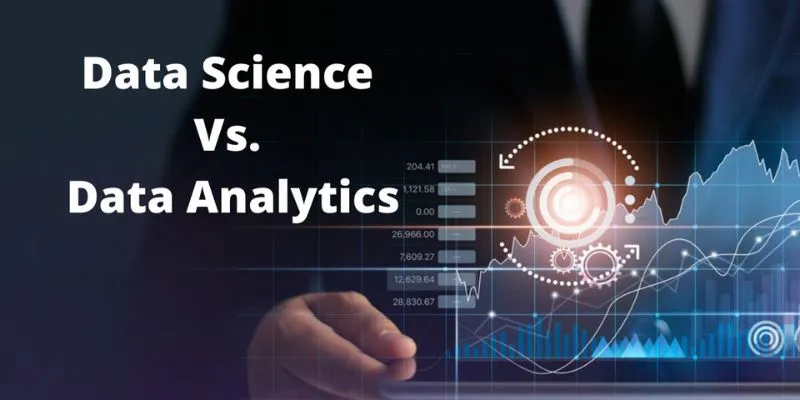Data drives the world today. From helping businesses make decisions to shaping our daily online experiences, it’s everywhere. With this data revolution, two terms have become increasingly prominent: Data Science and Data Analytics. They may sound similar, but their roles, applications, and skillsets are distinct. If you’re exploring career options or planning to enroll in a Data Science Course in Chennai understanding these differences is crucial. Let’s unpack the Key Differences Between Data Science and Data Analytics.
Understanding Data Science
Think of Data Science as a universe where creativity meets logic. It involves extracting knowledge and actionable insights from the amount of raw data, both structured and unstructured. This field blends mathematics, statistics, programming, and domain expertise to solve complex problems and predict future outcomes.
What does a Data Scientist do?
Data scientists are often seen as “data detectives.” Their job is to analyze patterns, create predictive models, and use tools like artificial intelligence (AI) and machine learning (ML) to answer questions businesses didn’t even know they had.
For instance, a Data Scientist might predict customer behavior for an e-commerce company, enabling targeted marketing strategies.
If you’re curious about diving deep into algorithms and working with tools like Python, R, and TensorFlow, exploring Data Science Courses in Bangalore could be your ideal choice.
Understanding Data Analytics
Now let’s talk about Data Analytics—the practical problem-solver in the data world. Data Analytics focuses on analyzing existing data to uncover actionable trends and insights.
Unlike Data Science, which delves into creating new models, Data Analytics works within predefined questions to find answers that businesses can act upon.
What does a Data Analyst do?
Data analysts sift through structured datasets using tools like Excel, SQL, and Tableau to create dashboards, generate reports, & help businesses to make informed decisions. For example, a data analyst might identify sales trends to optimize inventory.
Differences Between Data Science & Data Analytics
Although both fields play a significant role in the data-driven economy, they cater to different needs. Taking Data Analytics Training in Chennai can help you master foundational concepts while giving you hands-on experience with real-world datasets. Here are some distinctions to help you differentiate:
1. Scope of Work
- Data Science:
Broad in scope, Data Science focuses on predictive analysis, building models, and handling unstructured data. It’s a research-driven domain that asks, “What will happen?” - Data Analytics:
Narrower in scope, Data Analytics focuses on analyzing structured data to answer specific questions like, “What happened, and why?”
Also Check: Why is Python preferred for data science over other languages?
2. Skills and Tools
- Data Scientists: It uses programming languages like Python, R, and specialized tools like TensorFlow for machine learning.
- Data Analysts rely on SQL, Excel, and visualization tools like Power BI or Tableau for their work.
3. End Goals
- Data Science aims to predict and innovate.
- Data Analytics aims to understand and optimize.
4. Who They Work With
- Data Scientists collaborate with AI engineers and software developers to build automated systems.
- Data Analysts work closely with business managers and stakeholders to implement data-driven strategies.
When Should You Choose Data Science?
Also Check: Exploring Data Science Careers: Job Prospects and Essential Skills
When Should You Choose Data Analytics?
Future Trends and Career Opportunities
Both Data Science and Data Analytics are booming fields with no signs of slowing down. The world of data is vast, exciting, and full of opportunities. Whether you choose Data Science for its predictive insights or Data Analytics for its actionable solutions, both paths promise rewarding careers. Whether you’re starting fresh or transitioning careers, Data Analytics Training in Bangalore offers a strong entry point into this field.
